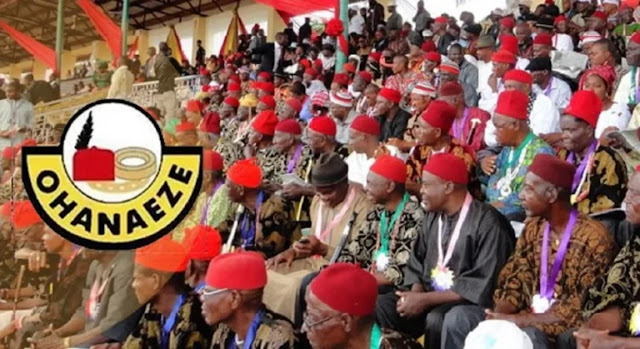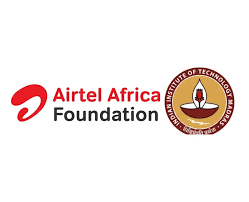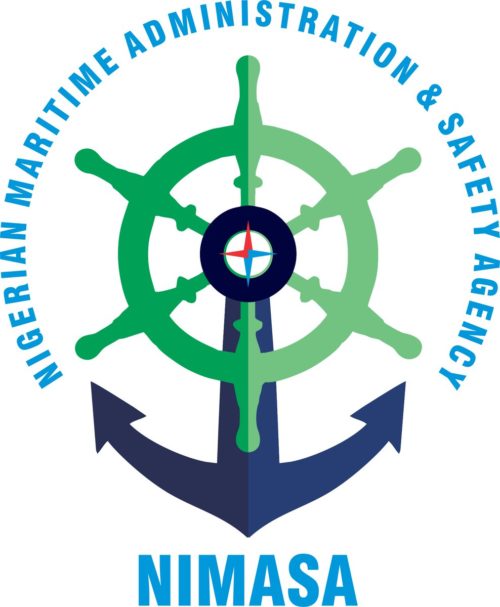The apex Igbo socio-cultural organization, Ohanaeze Ndigbo, has expressed deep concern over the persistently low voter registration figures in Nigeria’s Southeast geopolitical zone, attributing the dismal turnout to a combination of apathy, ineffective leadership, and systemic challenges. In a strongly worded statement issued on Sunday, the organization lambasted Southeast leaders, including governors, traditional rulers, and political stakeholders, for failing to mobilize citizens effectively for the ongoing voter registration exercise conducted by the Independent National Electoral Commission (INEC). The group described the low participation as a threat to the region’s political relevance and influence in Nigeria’s democratic process, urging immediate action to reverse the trend ahead of the 2023 general elections.
Background: Voter Registration and Political Participation in Nigeria
Voter registration is a critical component of democratic participation, enabling citizens to exercise their constitutional right to vote and influence the selection of leaders at various levels of government. In Nigeria, INEC is responsible for managing the voter registration process, which includes issuing Permanent Voter Cards (PVCs) to eligible citizens. The Continuous Voter Registration (CVR) exercise, relaunched in 2021, was designed to accommodate new voters, update voter details, and replace lost or damaged PVCs ahead of the 2023 elections. Despite these efforts, INEC has repeatedly reported low turnout in certain regions, with the Southeast consistently lagging behind other geopolitical zones.
The Southeast, comprising Abia, Anambra, Ebonyi, Enugu, and Imo states, is one of Nigeria’s six geopolitical zones and is predominantly inhabited by the Igbo ethnic group. Historically, the region has played a significant role in Nigeria’s political landscape, producing notable leaders and contributing to national development. However, recent data from INEC indicates that the Southeast has recorded the lowest number of registered voters among the six zones, raising concerns about the region’s ability to assert its influence in national politics.
Ohanaeze’s Statement: A Call for Accountability
In its statement, Ohanaeze Ndigbo highlighted the alarming statistics released by INEC, which showed that the Southeast had the lowest voter registration figures as of the latest reporting period. The organization expressed dismay at the region’s failure to capitalize on the CVR exercise, noting that the low turnout could undermine the Igbo people’s ability to shape Nigeria’s political future. “The Southeast cannot afford to remain politically irrelevant due to low voter registration,” the statement read. “Our leaders must wake up from their slumber and take responsibility for mobilizing our people.”
Ohanaeze singled out Southeast governors, members of the National Assembly, traditional rulers, and other influential figures for their apparent lack of commitment to civic engagement. The organization accused these leaders of prioritizing personal interests over the collective good, arguing that their failure to inspire and mobilize citizens has contributed to the region’s poor performance. “It is unacceptable that our leaders have not done enough to encourage our people to register and participate in the democratic process,” the statement continued. “This is a collective failure that must be addressed urgently.”
Factors Contributing to Low Voter Registration
The low voter registration turnout in the Southeast can be attributed to a combination of factors, ranging from socio-political challenges to logistical constraints. Ohanaeze’s statement alluded to several of these issues, while also calling for a deeper examination of the root causes.
Political Apathy and Disillusionment: Many citizens in the Southeast have expressed disillusionment with Nigeria’s political system, citing years of perceived marginalization and unfulfilled promises by elected officials. This sentiment has been particularly strong among the youth, who make up a significant portion of the region’s population. The lack of trust in the electoral process, coupled with skepticism about the impact of voting, has discouraged many from participating in voter registration exercises.
Security Challenges: The Southeast has faced significant security concerns in recent years, including incidents of violence linked to separatist agitations, communal clashes, and criminal activities. These issues have created an atmosphere of fear and instability, deterring citizens from engaging in public activities such as voter registration. In some cases, INEC registration centers have been targeted or disrupted, further complicating the process.
Logistical Barriers: Access to voter registration centers remains a challenge in many parts of the Southeast, particularly in rural areas. Limited infrastructure, poor road networks, and inadequate publicity about registration exercises have made it difficult for citizens to participate. Additionally, some residents have reported long waiting times and bureaucratic hurdles at registration centers, further discouraging turnout.
Weak Mobilization Efforts: Ohanaeze’s criticism of Southeast leaders points to a broader issue of ineffective mobilization. Unlike other regions where governors, traditional rulers, and community leaders have actively campaigned to boost voter registration, the Southeast has seen limited grassroots efforts. The absence of coordinated campaigns to educate and motivate citizens has contributed to the low turnout.
Separatist Sentiments: The rise of separatist movements, such as the Indigenous People of Biafra (IPOB), has influenced political participation in the Southeast. Some groups have called for a boycott of elections and voter registration, arguing that participation in Nigeria’s political process legitimizes a system they view as oppressive. While Ohanaeze did not directly reference IPOB in its statement, the organization’s call for unity and participation suggests an effort to counter such narratives.
The Implications of Low Voter Turnout
The consequences of low voter registration in the Southeast extend beyond the immediate electoral cycle. A reduced number of registered voters could weaken the region’s bargaining power in national politics, limiting its ability to advocate for policies and resources that address its unique needs. In Nigeria’s federal structure, political influence is often tied to voter strength, as regions with higher voter turnout tend to command greater attention from political parties and policymakers.
Furthermore, low participation risks perpetuating the narrative of political marginalization that has long been a point of contention for the Igbo people. Ohanaeze emphasized that active participation in the democratic process is essential for addressing historical grievances and securing a fair share of national resources. “If we fail to register and vote, we are voluntarily surrendering our voice and our future,” the organization warned.
The low turnout also has implications for the 2023 presidential election, where the Southeast has a vested interest in supporting candidates who align with its aspirations. Ohanaeze has previously advocated for an Igbo presidency, arguing that the region deserves to produce Nigeria’s next president to address decades of perceived exclusion from the highest office. However, without a strong voter base, the region’s ability to influence the outcome of the election will be severely limited.
Ohanaeze’s Call to Action
To address the crisis, Ohanaeze Ndigbo proposed a multi-pronged approach to boost voter registration and civic engagement in the Southeast. The organization called on Southeast governors to take a proactive role in mobilizing their constituents, including funding public awareness campaigns and providing logistical support to INEC. “Our governors must lead from the front,” the statement read. “They have the resources and authority to drive massive participation across their states.”
The organization also urged traditional rulers and community leaders to leverage their influence to encourage registration at the grassroots level. By engaging with local communities, these leaders can help dispel myths about the electoral process and address concerns about security and accessibility.
Ohanaeze further appealed to the youth, who constitute a significant portion of the unregistered population, to seize the opportunity to shape Nigeria’s future. The organization emphasized the importance of collective action, urging citizens to overcome apathy and participate in the democratic process. “The power to change our region’s trajectory lies in our hands,” the statement noted. “We must register, vote, and hold our leaders accountable.”
INEC’s Role and Response
INEC has acknowledged the challenges of voter registration in the Southeast and other regions, citing logistical constraints and security concerns as major obstacles. The commission has taken steps to address these issues, including extending the CVR exercise and increasing the number of registration centers in underserved areas. However, INEC has also called on state governments and community leaders to complement its efforts by mobilizing citizens and providing support for the registration process.
In response to Ohanaeze’s statement, INEC reiterated its commitment to ensuring a credible and inclusive electoral process. The commission encouraged Southeast residents to take advantage of the ongoing CVR exercise, assuring them that measures are in place to address security concerns and improve access to registration centers.
The Path Forward: A Collective Responsibility
The low voter registration turnout in the Southeast is a wake-up call for all stakeholders in the region. Ohanaeze Ndigbo’s statement underscores the urgency of addressing this issue to safeguard the region’s political relevance and influence. While the organization’s criticism of Southeast leaders is pointed, it also reflects a broader call for unity and collective responsibility.
To reverse the trend, a concerted effort is needed from all segments of society—government, traditional institutions, civil society organizations, and citizens themselves. Governors and elected officials must prioritize civic engagement, investing in campaigns to educate and motivate residents. Traditional rulers and religious leaders, who hold significant sway in their communities, can play a pivotal role in mobilizing grassroots participation. Civil society organizations and youth groups should also intensify efforts to raise awareness about the importance of voter registration and the power of the vote.
Moreover, addressing the underlying causes of apathy and disillusionment requires a long-term commitment to good governance and accountability. Southeast leaders must demonstrate that they are responsive to the needs of their constituents, delivering tangible benefits that restore trust in the political system. By addressing issues such as unemployment, infrastructure deficits, and security challenges, leaders can inspire greater confidence in the democratic process.
Conclusion
Ohanaeze Ndigbo’s condemnation of Southeast leaders over the low voter registration turnout highlights a critical challenge facing the region as Nigeria approaches the 2023 general elections. The organization’s call for urgent action serves as a reminder of the importance of civic participation in shaping the region’s political and economic future. While systemic challenges and historical grievances have contributed to the low turnout, the responsibility to reverse this trend lies with both leaders and citizens.
As the CVR exercise continues, the Southeast has an opportunity to reclaim its voice in Nigeria’s democratic process. By mobilizing effectively, addressing logistical barriers, and fostering a culture of active citizenship, the region can strengthen its position and advocate for its interests on the national stage. Ohanaeze’s statement is not just a critique but a rallying cry for unity, action, and empowerment—a call that the Southeast must heed to secure its rightful place in Nigeria’s future.







